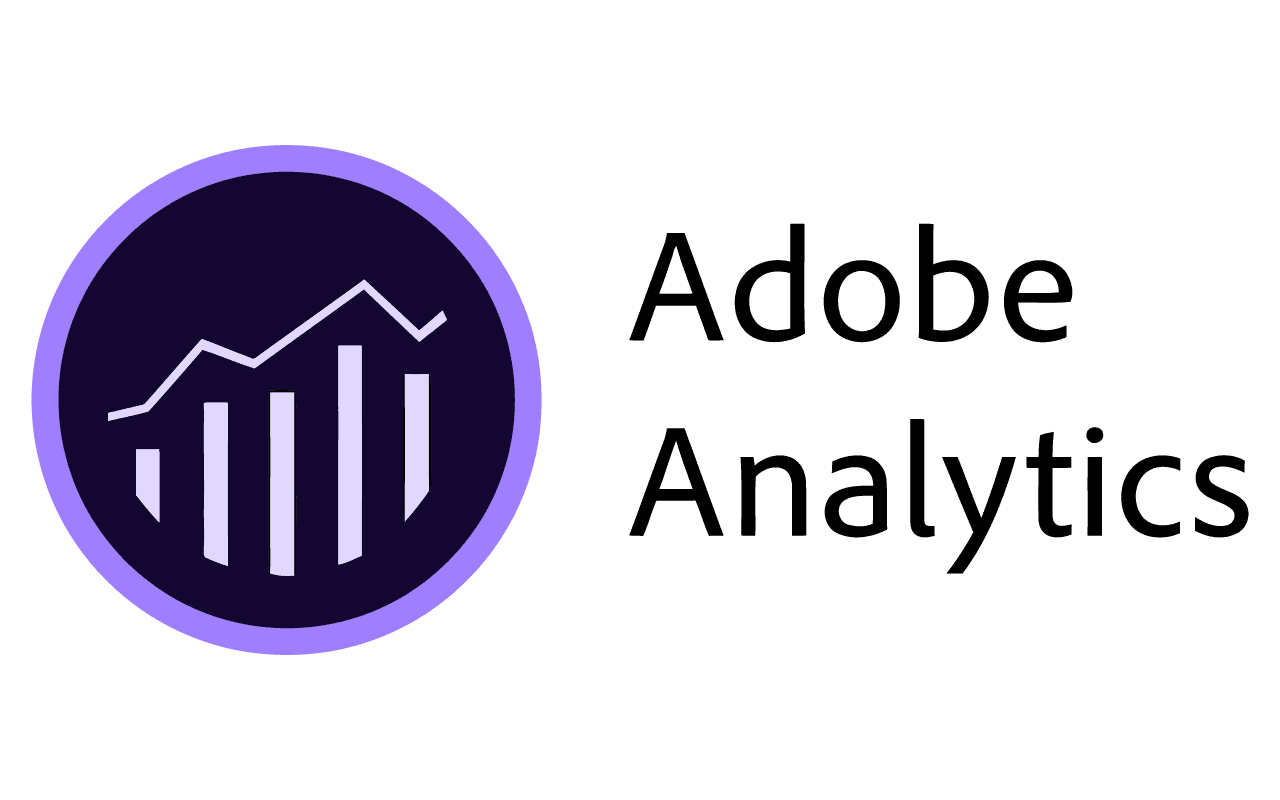When you’re swimming in the deep ocean of digital marketing, you quickly learn that not all life rafts are created equal. Especially when it comes to navigating the tumultuous waters of data analysis and campaign optimization. Enter our contenders in this high-stakes race: Adobe Analytics and Amplitude. Two giants in the analytics arena, each promising to be the compass that guides you to the treasure trove of informed decisions and strategic insights. But, ahoy! Which one should you hitch your vessel to? Let’s dive deep and find out.
| Adobe Analytics | Amplitude |
|---|---|
 |  |
| G2 Score – 4.1 out of 5 stars | G2 Score – 4.5 out of 5 stars |
| TrustRadius Score – 8.2 out of 10 | TrustRadius Score – 8.3 out of 10 |
Understanding User Behavior: A Deep Dive
One of the most critical battles in the analytics world is understanding user behavior. It’s the compass that guides businesses in the right direction, showing them where to go and what treasures lie beneath the surface. So, how do Adobe Analytics and Amplitude stack up when it comes to deciphering the actions, motivations, and desires of your users? Let’s set sail into this ocean of data.
Adobe Analytics: The Seasoned Navigator
Adobe Analytics is like the seasoned captain of a ship. It’s been navigating the seas for a long time, and its depth of experience is evident in its powerful suite of tools designed to track, analyze, and interpret user behavior across various digital landscapes. Adobe Analytics uses a combination of real-time analytics, detailed segmenting, and predictive modeling to provide a comprehensive view of your user’s journey.
What makes Adobe Analytics stand out is its ability to collect and analyze data from virtually any digital touchpoint. This includes web and mobile analytics, but also extends to more complex areas such as video, social media, and IoT (Internet of Things) devices. It’s particularly adept at integrating with other Adobe products, such as Adobe Experience Cloud, creating a seamless ecosystem where data flows freely and insights are more accessible.
The granularity of data available through Adobe Analytics is unmatched. You can drill down into the minutiae of user behavior, from the broad strokes of demographic trends down to the individual actions of a single user. This level of detail is invaluable for businesses that rely on nuanced user insights to drive their strategies.
However, this sophistication comes with its challenges. The complexity of Adobe Analytics means it often requires a skilled navigator to interpret the data and translate it into actionable strategies. It’s not just about having the data; it’s about understanding what it’s telling you. This can make Adobe Analytics a more suitable choice for larger organizations or those with dedicated analytics teams.
Amplitude: The Agile Explorer
On the flip side, Amplitude represents the agile explorer. It’s built for speed and flexibility, designed to provide quick, actionable insights that help you adapt to the ever-changing digital landscape. Amplitude focuses on product analytics, with a strong emphasis on user engagement and retention.
Amplitude’s interface is user-friendly and intuitive, making it easier for teams to dive in and start exploring their data without a steep learning curve. It’s particularly praised for its event-based tracking system, which allows businesses to track specific actions users take within their digital products. This focus on events rather than page views offers a more dynamic view of user behavior, highlighting the paths that lead to conversion or churn.
Another area where Amplitude shines is in its collaboration and sharing capabilities. The platform is designed to democratize data, making it accessible and understandable to not just analysts but product managers, marketers, and other team members. This encourages a culture of data-driven decision-making across the organization.
Amplitude also offers powerful segmentation and cohort analysis tools, enabling businesses to group users based on behaviors, actions, or characteristics. This is crucial for understanding not just who your users are, but how they interact with your product over time. It’s a vital tool for any business focused on improving user engagement and retention.
However, while Amplitude is powerful in its own right, it might lack the depth of integration and the breadth of data collection capabilities found in Adobe Analytics. This makes it a potent tool for businesses focused on product analytics but perhaps less suited for those needing a comprehensive view across all digital marketing channels.
Navigating the Waters
Choosing between Adobe Analytics and Amplitude comes down to understanding the needs of your ship. Are you a large vessel, equipped with a seasoned crew, needing the depth and breadth of Adobe Analytics to navigate complex digital waters? Or are you a swift explorer, agile and quick, looking to make fast, informed decisions with Amplitude’s streamlined insights?
Integration Capabilities and Ecosystem: Building Your Analytics Armada
In the quest for digital dominance, no tool is an island. The ability to integrate with other software, platforms, and technologies is akin to forming alliances in uncharted territories. It’s about creating a seamless flow of information across your digital ecosystem to enhance decision-making and strategic execution. Here, we’ll compare how Adobe Analytics and Amplitude fare in their ability to integrate and play nice with other digital tools and systems.
Adobe Analytics: The Empire Builder
Adobe Analytics doesn’t just integrate; it seeks to build an empire. As part of the Adobe Experience Cloud, it’s a component of a much larger suite of tools designed to cover every aspect of digital marketing, from content creation and management (Adobe Experience Manager) to advertising (Adobe Advertising Cloud) and commerce (Adobe Commerce Cloud). This extensive ecosystem is Adobe’s greatest strength, offering a level of integration that’s hard to match.
For organizations already invested in the Adobe ecosystem, the choice seems clear. The seamless integration across Adobe’s suite of products can unlock synergies that standalone products struggle to achieve. Data collected in Adobe Analytics can directly inform and optimize marketing campaigns in Adobe Advertising Cloud or personalize experiences in Adobe Experience Manager, all without the need for complex integrations or data migrations.
Moreover, Adobe Analytics offers robust APIs and a plethora of connectors for non-Adobe products, ensuring that it can serve as the central hub of your analytics efforts, even in a diverse digital environment. This makes it a powerful option for large enterprises with complex needs and multiple digital touchpoints to manage.
Amplitude: The Agile Alliance Maker
Amplitude, while not part of a broader suite of marketing tools, understands the importance of alliances in the digital realm. It focuses on offering robust integration capabilities with a wide array of third-party tools, platforms, and services. This approach ensures that Amplitude can fit snugly into your existing digital ecosystem, enhancing your analytics capabilities without requiring a wholesale migration to a new suite of tools.
Amplitude excels in its ability to integrate with product and marketing tools, including A/B testing platforms, email marketing services, and customer relationship management (CRM) systems. This enables organizations to feed insights from Amplitude directly into their operational tools, making data-driven decisions faster and more efficiently.
Moreover, Amplitude’s focus on product analytics makes it particularly adept at integrating with mobile and web development platforms. This ensures that insights derived from user behavior can directly influence product development and optimization efforts, fostering a culture of continuous improvement.
While Amplitude might not offer the same level of native integration within a single suite as Adobe Analytics, its flexibility and the breadth of its integration capabilities make it a formidable tool for businesses that prioritize agility and want to leverage analytics insights across a diverse set of tools and platforms.
Choosing Your Alliance
The decision between building an empire with Adobe Analytics or forming agile alliances with Amplitude hinges on your organization’s size, complexity, and existing digital infrastructure. Adobe Analytics offers a powerful, integrated solution within its ecosystem, ideal for large enterprises seeking to centralize their digital marketing efforts. In contrast, Amplitude’s strength lies in its flexibility and ease of integration, making it a compelling choice for businesses that value speed, agility, and the ability to work seamlessly with a wide range of tools and platforms.
As we navigate these waters, it’s clear that the choice between Adobe Analytics and Amplitude is not merely a matter of comparing features in isolation. It’s about understanding how each tool fits within the broader context of your digital marketing strategy and infrastructure.
Customization and Scalability: Tailoring Your Digital Sails
In the journey through digital marketing, the ability to customize your analytics platform and scale it according to your business growth is akin to adjusting your sails to the changing winds and tides. It’s about ensuring that your analytics tool can grow and adapt with you, offering the flexibility to meet your evolving needs. Here, we examine the customization and scalability of Adobe Analytics and Amplitude.
Adobe Analytics: The Master Shipwright
Adobe Analytics offers a level of customization that is both its strength and its complexity. It is akin to having a master shipwright at your disposal, able to construct a vessel tailored precisely to your specifications. Adobe Analytics allows businesses to create highly customized reports, dashboards, and analytics models that can match the specific needs of different stakeholders within the organization.
The platform’s robust segmentation capabilities, combined with its ability to handle vast amounts of data, make it a powerful tool for businesses that require detailed, customized analytics solutions. Adobe Analytics is designed to scale, capable of handling the needs of small businesses to large enterprises. Its infrastructure supports the processing of massive data volumes, ensuring that as your business grows, Adobe Analytics can grow with you, providing deep insights without sacrificing performance.
However, the sophistication and complexity of Adobe Analytics’ customization options can be a double-edged sword. It often requires specialized knowledge or training to fully leverage its capabilities, which can be a barrier for smaller teams or businesses without dedicated analytics professionals.
Amplitude: The Agile Craft
In contrast, Amplitude offers customization with a focus on agility and user-friendliness. It’s like an agile craft that can be quickly adjusted to catch the changing winds. Amplitude’s dashboards and reports are highly customizable, allowing users to easily tailor them to their specific needs without requiring extensive technical knowledge. This makes Amplitude particularly attractive to startups and agile teams that need to move quickly and adapt on the fly.
Amplitude’s scalability is also a key feature, designed to grow with your business. It effortlessly handles large volumes of data, ensuring that insights remain accurate and actionable as your user base expands. This scalability, combined with its event-based analytics model, makes Amplitude a robust tool for businesses at any stage of growth, especially those focused on understanding and improving product engagement.
Moreover, Amplitude’s focus on democratizing data across organizations means that its customization options are designed to be accessible to a wide range of users, from marketers to product managers. This approach ensures that insights derived from Amplitude can be quickly turned into action across different departments, fostering a culture of data-driven decision-making.
Setting Your Course
When it comes to customization and scalability, the choice between Adobe Analytics and Amplitude depends on the specific needs and capabilities of your business. Adobe Analytics offers a highly customizable, scalable solution that is best suited for large enterprises or businesses with complex analytics needs and the resources to manage them. On the other hand, Amplitude provides an agile, user-friendly option that is easily scalable and customizable, making it ideal for startups, agile teams, and businesses focused on rapid growth and product engagement.
As we navigate the vast ocean of marketing analytics tools, it’s clear that the right choice depends on the unique journey of each business. Whether you’re building a vast empire with Adobe Analytics or charting agile courses with Amplitude, the key is to choose a tool that not only meets your current needs but can also grow and adapt with you into the future.

Related: Check out our free SEO suite

User Interface and User Experience: Navigating Your Analytics Journey
The UI and UX of an analytics tool are like the map and compass for your digital exploration. They determine how easily and effectively you can navigate your data to unearth valuable insights. Let’s compare how Adobe Analytics and Amplitude fare in providing a user-friendly experience.
Adobe Analytics: The Complex Navigator
Adobe Analytics offers a powerful, albeit complex, interface that caters to experienced users. Its UI is packed with features and functionalities that, while powerful, can present a steep learning curve for new users. Adobe Analytics is like a sophisticated navigation system that offers precise control and detailed analysis capabilities, ideal for users who are familiar with the terrain and know exactly what they’re looking for.
However, this complexity can sometimes slow down users who are not as experienced with the platform, requiring them to climb a learning curve before they can fully utilize its capabilities. Adobe has been making strides in improving the UX to make it more intuitive, but the depth and breadth of the platform’s capabilities still require a significant investment in training and practice to navigate effectively.
Amplitude: The Intuitive Explorer
Amplitude, in contrast, focuses on providing a more intuitive and user-friendly experience. Its UI is designed to be accessible to users of all levels, from beginners to advanced analysts. Amplitude allows users to quickly get up to speed and start generating insights, making it an excellent tool for teams that need to move fast and may not have the luxury of extensive training.
The platform emphasizes visual data exploration, with a clean and straightforward interface that makes it easy to perform complex analyses without getting lost in the details. This approachable UI and UX make Amplitude particularly appealing to startups and agile teams that prioritize speed and efficiency in their analytics processes.
Support and Community: Charting Your Course with Confidence
The support and community surrounding an analytics tool can greatly affect your ability to leverage it effectively. It’s like having a crew of seasoned navigators and fellow explorers to guide you through uncharted waters.
Adobe Analytics: The Established Fleet
Being part of the Adobe suite, Adobe Analytics benefits from a vast, well-established support structure. Users have access to extensive documentation, a large community of users, and professional support from Adobe. This ecosystem ensures that help is readily available, whether you’re troubleshooting a complex issue or seeking advice on best practices.
Moreover, Adobe offers training and certification programs that can help users at all levels enhance their skills and understand how to leverage the platform more effectively. This comprehensive support network is invaluable for enterprises that rely on their analytics tools for critical business decisions.
Amplitude: The Agile Crew
Amplitude may not have the same breadth of support infrastructure as Adobe, but it compensates with agility and a strong focus on community engagement. Amplitude offers detailed documentation, responsive customer support, and an active user community that shares tips, best practices, and innovative use cases.
Additionally, Amplitude frequently updates its platform with new features and improvements based on user feedback, demonstrating a commitment to evolving in response to the needs of its user base. This responsive and engaged support ecosystem is highly beneficial for businesses looking for a tool that grows and adapts with them.
Setting Sail with the Right Tool
In the end, choosing between Adobe Analytics and Amplitude comes down to your team’s specific needs, expertise, and the kind of journey you’re embarking on. Adobe Analytics offers a robust, feature-rich platform with extensive support and a steep learning curve, ideal for large enterprises and seasoned data navigators. On the other hand, Amplitude provides an intuitive, agile solution with a strong community and responsive support, perfect for startups and teams that value speed and user-friendliness.
As we conclude this comparison, it’s clear that both tools offer distinct advantages and cater to different types of digital adventurers. The choice between Adobe Analytics and Amplitude should be guided by your organization’s unique landscape, the complexity of your data, and the agility of your team.
Pricing Structures: Deciphering the Cost of Insights
Pricing models for analytics platforms can be as varied as the data they analyze, with structures ranging from straightforward subscription fees to more complex, usage-based pricing. Understanding these models is essential for businesses to anticipate costs and align them with anticipated value.
| Adobe Analytics | Adobe Analytics does not publicly disclose its pricing, as it tailors costs to each customer’s specific needs. However, it’s suggested that prices can range from $48,000 to $350,000 per year. |
| Amplitude | Amplitude offers several plans, including a Free plan, a Growth plan starting at $995 per month, and an Enterprise plan with custom pricing. |
Adobe Analytics: The Premium Expedition
Adobe Analytics is known for its premium positioning in the market, reflecting its comprehensive suite of features and deep integration capabilities within the Adobe ecosystem. The pricing for Adobe Analytics is not publicly disclosed, which is typical for enterprise-level software solutions. Instead, Adobe customizes pricing based on the specific needs and scale of each organization, including factors like the volume of data processed, the number of users, and the breadth of features required.
This tailored pricing approach means that businesses interested in Adobe Analytics must engage directly with Adobe’s sales team to obtain a quote. While this can make initial cost assessments more challenging, it ensures that the pricing plan is customized to the organization’s specific needs, potentially offering a more cost-effective solution for enterprises that can leverage the full power of Adobe Analytics.
The premium nature of Adobe Analytics often translates to higher overall costs, making it a significant investment. However, for large enterprises or those deeply integrated into the Adobe ecosystem, the return on this investment can be substantial, given the platform’s advanced capabilities and strategic value.
Amplitude: The Scalable Voyage
Amplitude takes a different approach to pricing, offering more transparency with tiered plans that cater to businesses of various sizes and needs. Amplitude’s pricing structure is designed to scale with the usage and features required by the organization, making it accessible for startups and small to medium-sized businesses, while still offering the scalability needed by larger enterprises.
Amplitude typically provides a free tier, which offers a limited set of features suitable for small teams or projects just starting with product analytics. From there, pricing scales up based on the number of events tracked and the advanced features required, such as more detailed segmentation, behavioral analysis, and data governance tools.
This clear, scalable pricing model allows businesses to start small and increase their investment as their data needs grow. It offers the flexibility to scale usage and costs in tandem with business growth, making Amplitude an attractive option for companies seeking to maximize their ROI on analytics.
Navigating the Value Seas
When considering the value that Adobe Analytics and Amplitude offer, it’s not just about the sticker price but what you get for your investment. Adobe Analytics provides a comprehensive, enterprise-grade solution with deep analytical capabilities and integration within the Adobe ecosystem, justifying its higher cost for organizations that can fully leverage its power. On the other hand, Amplitude offers a flexible and scalable solution that can provide significant value for businesses focused on rapid growth and product engagement, with a pricing model that allows for gradual investment.
The decision between Adobe Analytics and Amplitude in terms of pricing and value will depend on several factors, including your organization’s size, data complexity, and specific analytics needs. For businesses requiring advanced, integrated analytics capabilities and with the budget to support it, Adobe Analytics may offer the right value proposition. Conversely, Amplitude might be the more cost-effective choice for agile teams and startups looking for a powerful yet scalable analytics tool.
Data Privacy and Compliance: Safeguarding Digital Treasures
In the age of GDPR, CCPA, and other privacy regulations, the ability of an analytics platform to provide robust data protection and compliance features is like having a trusted navigator guiding you through perilous legal waters. Both Adobe Analytics and Amplitude recognize the importance of these concerns and have developed their platforms with privacy and compliance at the forefront.
Adobe Analytics: The Fortified Castle
Adobe Analytics, being part of the larger Adobe ecosystem, benefits from Adobe’s comprehensive approach to data privacy and security. Adobe has long been at the forefront of incorporating privacy-by-design principles into its products, ensuring that data collection, processing, and storage are conducted in a manner compliant with global data protection regulations.
Adobe Analytics offers extensive tools and settings to manage data privacy, including consent management features that help businesses comply with user consent requirements under GDPR and similar laws. It provides capabilities for anonymizing user data, managing data retention policies, and easily responding to data subject access requests, making it easier for enterprises to adhere to privacy regulations.
Moreover, Adobe’s global presence and experience in working with large, multinational corporations mean that its products, including Adobe Analytics, are designed to meet the rigorous standards required in various jurisdictions. This makes Adobe Analytics a reliable choice for businesses that operate across borders and need to navigate the complex landscape of global data protection laws.
Amplitude: The Agile Guardian
Amplitude also places a strong emphasis on data privacy and compliance, understanding its importance for businesses, especially in the tech and SaaS sectors where it has a strong foothold. Amplitude is designed to be compliant with major data protection regulations like GDPR, CCPA, and others, offering features that enable businesses to collect and manage user data responsibly.
Amplitude provides tools for managing user consent, deleting user data upon request, and ensuring that data collection practices meet the legal requirements of the jurisdictions in which a business operates. Its approach to data privacy and compliance is built to be flexible, allowing businesses to adapt to new regulations as they emerge.
Additionally, Amplitude’s focus on product analytics means it collects data with an emphasis on user behavior rather than personal information, which inherently reduces privacy risks. However, it still offers robust options for data encryption, access controls, and audit trails to ensure that data is protected and used in compliance with regulations.
Navigating the Regulatory Seas
Both Adobe Analytics and Amplitude offer strong data privacy and compliance features, but their approaches reflect their broader philosophies and target markets. Adobe Analytics, with its enterprise focus, offers a fortress of data protection tools suitable for large organizations with complex compliance needs. In contrast, Amplitude provides an agile guardian approach, with flexible and adaptable tools that cater to fast-moving businesses in the digital and tech sectors.
Choosing between Adobe Analytics and Amplitude on the basis of data privacy and compliance will depend on the specific needs of your business, including the scale of your operations, the jurisdictions you operate in, and the level of data protection you require. Both platforms are committed to helping businesses navigate the choppy waters of data privacy regulations, but the right choice for you will align with your unique compliance journey and business landscape.
As we weigh anchor on this aspect of our comparison, it’s clear that the choice between Adobe Analytics and Amplitude involves a careful consideration of not just features and functionalities, but also how well each platform can help your business comply with data privacy regulations and protect user information.
Conclusion
In the intricate dance of choosing between Adobe Analytics and Amplitude, we’ve navigated through their features, user experiences, integrations, pricing models, and data privacy capabilities. Adobe Analytics emerges as a beacon for large enterprises seeking a comprehensive, integrated suite within the Adobe ecosystem, offering deep analytical prowess at a premium. On the flip side, Amplitude shines as a nimble contender, ideal for tech-savvy businesses and startups keen on scaling their product analytics with flexibility and a user-centric approach.
The decision ultimately hinges on aligning each platform’s strengths with your business’s specific needs, budget constraints, and long-term data strategy. Whether you lean towards Adobe’s robust, enterprise-grade analytics or Amplitude’s agile, product-focused insights, the choice reflects your voyage towards data-driven decision-making and strategic growth. As we conclude this comparison, remember, the best tool is not about the most features, but the one that fits seamlessly into your narrative, enabling your business to weave through data with precision and insight.
Read Next:





















